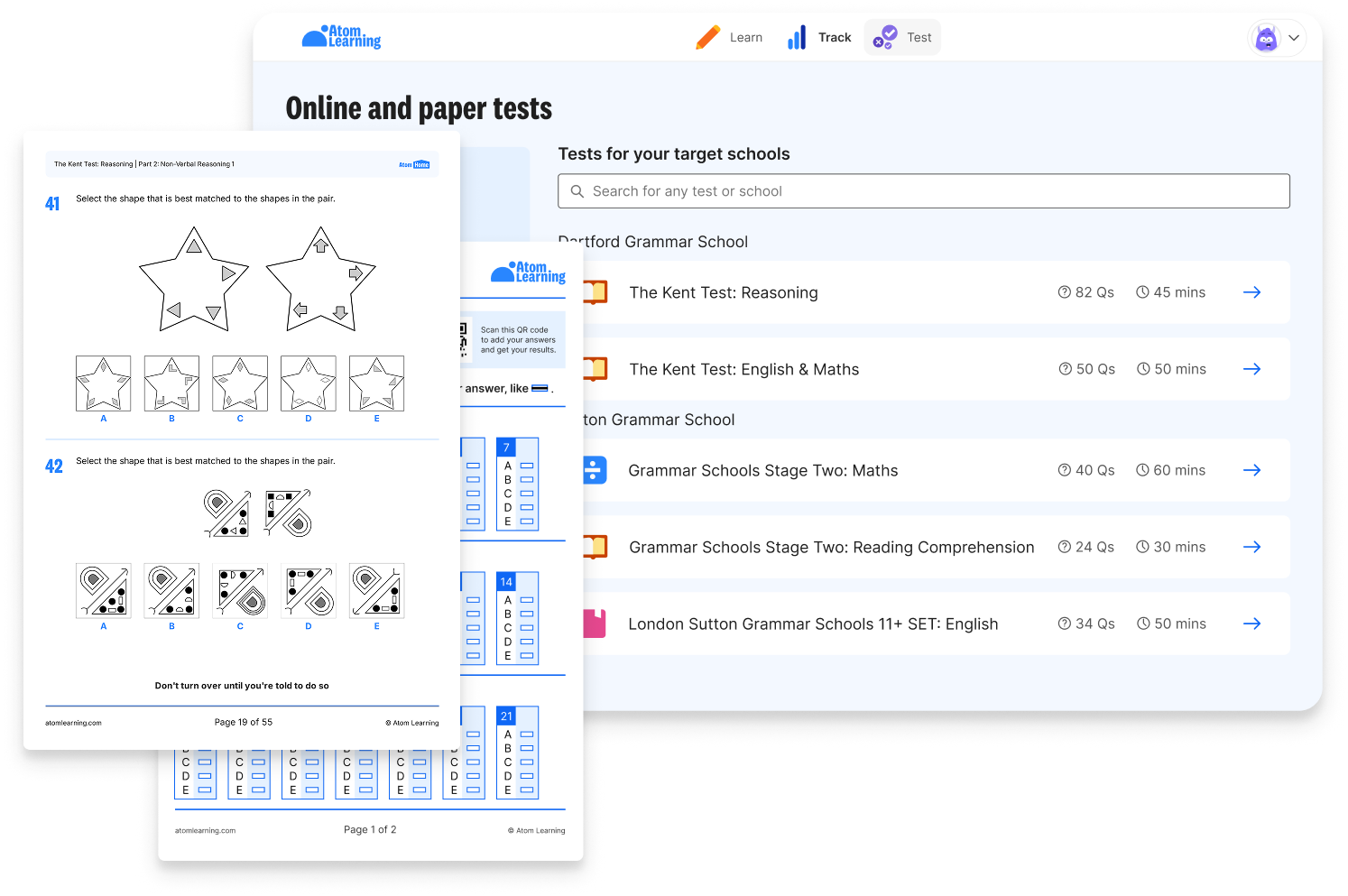5 tips to build an effective study routine

The new school term is an ideal time for a fresh start. But we know it isn't always easy to form good habits. And we know the pain of watching our child struggle to engage with their homework.
Here are five ways to make your child's study routine more enjoyable and sustainable. These tips will help them build a healthy relationship with learning – one that could set them up for success for the rest of their education!
1. Break it down
We retain information best when we learn in bitesize chunks. Plan your child’s study routine around short but fully-focused bursts of learning.
Most children get around 2.5 hours of homework each week. You'll see below that it’s simply not possible to sit down and complete this all in one go!
As children grow, so does their attention span and ability to remember information for the long-term. When creating their study schedule, take these timings into account:
Average length of focus by age
Age 7
- Lower range: 14 minutes
- Upper range: 21 minutes
Age 8
- Lower range: 16 minutes
- Upper range: 24 minutes
Age 9
- Lower range: 18 minutes
- Upper range: 27 minutes
Age 10
- Lower range: 20 minutes
- Upper range: 30 minutes
Age 11
- Lower range: 22 minutes
- Upper range: 33 minutes
Age 12
- Lower range: 24 minutes
- Upper range: 36 minutes
2. Harness their circadian rhythm
Our circadian rhythms regulate physical and behavioural processes – things like sleep and cognitive functions. Our concentration and cognition is affected by the ebb and flow of these rhythms.
There's no universal 'best time to learn' – it largely depends on the person. Everyone's peak performance time varies depending on their unique circadian rhythm.
But there are some general trends. Research shows that children under 6 are more likely to be ‘morning’ people. People are more likely to become 'evening' people as they enter adolescence.
Peak performance in primary school children
Consider your child’s peak performance tendencies when planning their study schedule. Mornings can be hectic, but you'd be surprised how little study time you need to set aside for younger children (see our previous tip). Evening study creeps towards younger children’s bedtime, making concentrating difficult.
As well as taking advantage of children's energy patterns, you can use morning study sessions as a motivational tool. Encourage your child to study in the morning to work towards a fun activity or reward later in the day.
Here at Atom Learning, we've seen that children who use our online learning platform in the morning progress 59% faster than children who use it in the afternoon!
- Morning: Many children are alert and experience good cognitive performance. Their brains are receptive to learning and forming memories.
- Mid-morning to early afternoon: Alertness may continue to improve, allowing for the best learning and retention.
- Afternoon: Children often experience a dip in alertness known as the 'afternoon slump'. Tiredness can affect their ability to concentrate and learn.

3. Tap into technology
Technology offers lots of support for building good study habits and sticking to a schedule.
Does your child work well with music? Playing their favourite tunes can boost their enjoyment of study sessions. White noise is another option to block out household distractions. Explore background sounds with your child to find what they like best. Study playlists on Spotify or YouTube range from lively focused beats to calming rain noises.
Online learning is a convenient way to form healthy learning habits. Platforms such as Atom are designed to help your child feel excited about learning. When they genuinely love their study time, getting them to stick to a schedule won’t be a battle.
“She enjoys it, I enjoy it. My approach is not to pressure her. I set the work but she navigates it herself, which helps her to feel ownership over her progress. If she’s happy, she’s willing to do the work.” – Amirah, parent of a daughter in Year 5
£100 off your Atom Home subscription
You have the chance to win £100 off your Atom Home subscription when you sign up to our newsletter.

4. Keep it consistent
Consistency helps new habits stick. Encourage your child to write or draw a timetable for their weekly activities. Make sure they build in plenty of time for fun and social activities as well as study time! You can download a blank schedule here for your child to fill in:

Help them get into the routine of tackling homework early. If an exam is coming up, plan ahead and begin revision well in advance. This will foster a sense of responsibility and avoid any last-minute rushes, keeping the pressure off.
Regularly sitting down to work in the same place can help us to reinforce learning habits. Set aside a comfortable area for learning. Let them decorate and arrange it how they want so they feel ownership and enjoy using it.
As parents we know that a solid study schedule isn't just about the time spent learning. It also relies on being consistent with wellbeing habits. A good night's sleep, healthy snacks and staying hydrated will keep energy levels up. Physical activity is also vital for brain function. Build time for movement into their daily routine. With regular opportunities to have fun and let off steam, they'll feel more focused and motivated.

5. Communicate and overcome challenges together
Celebrate your child's progress and praise their effort in sticking to their study routine. Regularly check in with them to understand any challenges they're facing. Give them ownership over the schedule – is there anything they want to adjust?
If your child is finding it difficult to maintain their study habits, explore this together. There are lots of reasons why children may struggle with studying, whether it’s lack of interest, worries, distractions, or neurodiversities such as ADHD or dyslexia.
By staying open-minded and involved you can spot issues early. With your support, any of these challenges can be overcome, and your child will learn from the experience.
Remember, there's no single study routine that suits all children or all families. The key to building your own is to balance consistent habits with flexibility. Your encouragement will spark their joy for learning and set them up for success in the new term and beyond!
Take control of your child’s 11+ preparation.

Not sure if your child is on track for the grammar school 11+? You don’t need to guess what to cover or whether they’re ready. Atom shows you exactly what to practise each week and how they’re performing, so you can stay ahead of the process without the stress.
- Follow personalised weekly exam plans that show them what to learn next.
- Download replica 11+ practice papers and upload a photo for instant, stress-free marking.
- Track progress and see how they compare to others applying to the same schools.
Start your free trial and help your child feel fully prepared for the 11+.

.avif)

